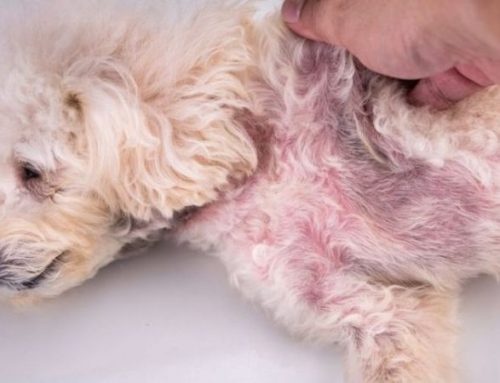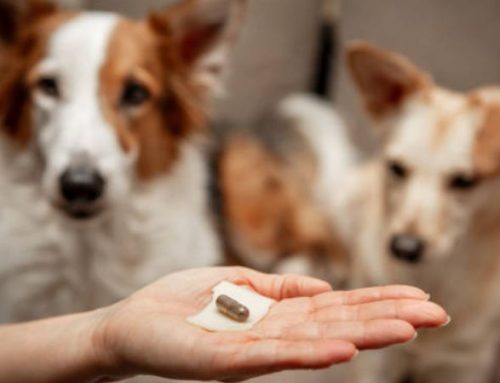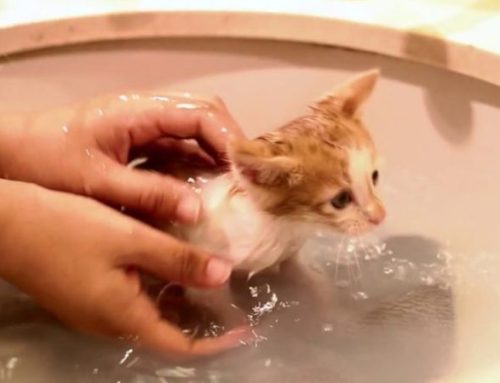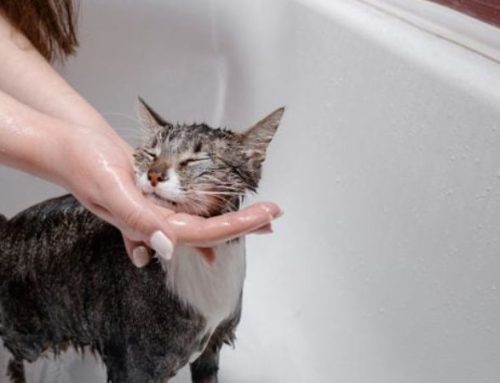Few things can test a cat owner’s patience like discovering that your furry friend has decided to mark the couch, the curtains, or even your favorite shoes. While it’s easy to get frustrated, spraying is often your cat’s way of communicating that something isn’t quite right.
Whether it’s stress, territory issues, or health concerns, understanding why your cat sprays is the first step to solving the problem. In this guide, we’ll explore practical home remedies and proven strategies to help stop indoor spraying and restore peace (and fresh air) to your home.
Understanding Why Cats Spray Indoors
If your cat has suddenly started spraying inside your home, it’s important not to jump to conclusions. Spraying isn’t a sign of bad behavior — it’s a form of communication. Cats spray to express anxiety, mark their territory, or cope with change. However, before assuming it’s behavioral, a vet visit should always be your first step.
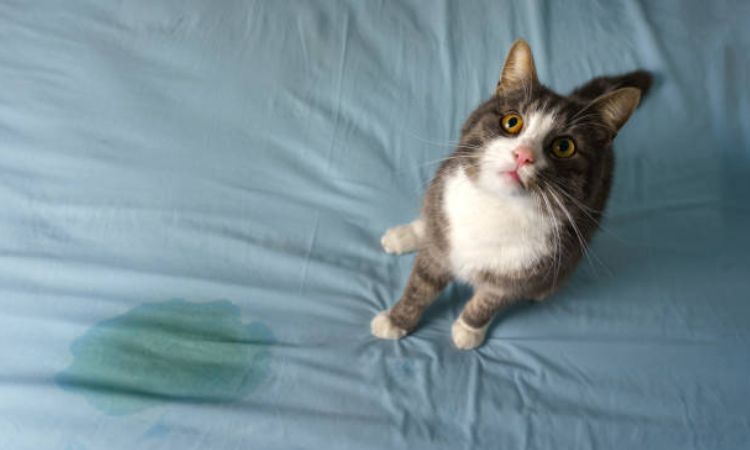
Medical Reasons and Why a Vet Check-Up Is Essential
When a cat starts spraying or urinating in unusual places, there may be an underlying medical condition causing discomfort or changes in their routine.
Common health-related causes include:
- Feline Idiopathic Cystitis (FIC): A painful bladder inflammation often triggered by stress. It can cause frequent urination, blood in the urine, and avoidance of the litter box.
- Urinary Tract Issues: Though rare in cats, infections or bladder stones can make urination painful, leading to spraying-like behavior.
- Arthritis or Joint Pain: Older cats with mobility problems may struggle to squat or reach the litter box, resulting in urination on vertical or easy-to-access surfaces.
- Kidney or metabolic diseases: Conditions like kidney disease or diabetes can increase urination frequency and accidents.
Because these issues can be serious — and sometimes life-threatening — it’s crucial to schedule a veterinary examination as soon as the problem appears. Your vet can rule out or treat medical causes before addressing behavioral ones. Catching these problems early can prevent discomfort and restore your cat’s normal habits quickly.
Behavioral and Environmental Causes
If your cat gets a clean bill of health from the vet, spraying is likely due to stress, insecurity, or environmental changes. Spraying is a natural feline instinct, but indoor spraying is usually a response to something making your cat feel uneasy.
1. Stress and Anxiety
Cats are highly sensitive to changes in their surroundings. Even small disruptions can make them feel unsafe. Common stress triggers include:
- A new baby, guest, or pet in the home
- Construction, renovations, or loud noises
- Changes in schedule, such as new work hours
- Conflict between cats in a multi-cat household
When stressed, cats spray to release tension and surround themselves with their own scent — a natural way of creating comfort and security.
2. Territory Marking
In multi-cat homes or neighborhoods with many outdoor cats, your cat might feel the need to defend its territory. Spraying around doors, windows, or entryways is your cat’s way of sending a message to potential intruders: “This area is mine.”
Even indoor-only cats can become anxious if they see another cat outside through the window. This perceived invasion can trigger marking behavior as they try to reassert control over their environment.
3. Response to New Scents and Objects
Cats rely heavily on scent familiarity. When you move to a new home, replace furniture, or redecorate, the loss of familiar smells can make your cat feel displaced. Spraying helps them re-establish a sense of belonging in the space. Introducing too many new objects or rearranging furniture too quickly can confuse or unsettle your cat, leading to unwanted marking.
How to stop a cat from spraying indoors home remedies
Step 1: Clean and Remove Odors Thoroughly
The first and most crucial step in preventing your cat from spraying again is to completely eliminate the scent of previous urine deposits. Cats are highly sensitive to smell, and even faint traces can trigger repeat spraying. Use enzymatic or biological cleaners specifically formulated to break down pet urine proteins, as these effectively remove the odor at a molecular level. Avoid ammonia- or bleach-based cleaners because they can mimic the scent of urine and inadvertently encourage more spraying.
For a natural home remedy, you can create a cleaning solution by mixing water with lemon juice or white vinegar. Both ingredients are safe for most surfaces and have natural deodorizing properties. Apply the solution generously to the affected area, allow it to sit for several minutes, then blot and rinse thoroughly. Using a UV blacklight can help identify hidden urine spots, ensuring no trace is left behind to provoke your cat.

Step 2: Create a Comfortable, Stress-Free Environment
Stress is one of the most common reasons indoor cats start spraying, so creating a calm and secure home environment is essential. Ensure your cat has access to adequate resources, including multiple litter boxes, food and water bowls, scratching posts, and cozy resting areas. Place these resources in quiet, low-traffic areas where your cat feels safe and undisturbed.
Pheromone diffusers, such as Feliway, can be an excellent addition to your home. These devices release synthetic feline facial pheromones that help cats feel more relaxed and reassured in their territory. By combining physical comfort with pheromone-based stress relief, you reduce anxiety triggers that often lead to spraying. Regular interaction, gentle play, and positive reinforcement can also strengthen your cat’s sense of safety and well-being.
Step 3: Use Natural Home Remedies and Repellents
Several natural remedies can help deter cats from spraying specific areas. Citronella oil, when diluted with water (one part oil to four parts water), can act as a safe repellent when lightly sprayed around problem spots. Rosemary, either as fresh herbs or a lightly diluted rosemary water spray, can also discourage spraying thanks to its strong scent.
Other household solutions include mixtures of garlic, lemon juice, and pepper water, though care should be taken with hot pepper to avoid irritation. Placing citrus peels, coffee grounds, or lightly applied orange or lemon juice around previously sprayed locations can help redirect your cat away from these areas. Even vanilla-scented remedies, such as a simple vanilla pod infusion spray, can create an aroma that cats tend to avoid, making it a useful tool in your home arsenal.
Step 4: Modify Behavior and Environment
Sometimes changing the environment itself is the most effective way to prevent indoor spraying. Transform previously marked areas into spaces with a new purpose: place food, water bowls, or bedding in these spots so your cat sees them as safe and desirable rather than a territory to mark. Blocking access to problem zones with doors, baby gates, or furniture rearrangement can remove the temptation entirely.
Visual triggers, such as outdoor cats, often spark indoor spraying. Closing curtains or blinds or applying frosted window film can shield your cat from seeing other felines outside. For homes with active outdoor cat intruders, motion-activated sprinklers or other humane deterrents can help reduce territorial stress. The goal is to limit triggers while gradually guiding your cat toward calm, accepted behaviors indoors.
Step 5: Additional Tips
Some measures go beyond cleaning and deterrents but are crucial for long-term success. Neutering or spaying your cat is highly effective in reducing hormone-driven spraying behavior, even in adult cats. Maintaining enough litter boxes—ideally one per cat plus an extra is vital to minimize stress, especially in multi-cat households.
Secure any cat flaps to prevent neighborhood cats from entering and creating anxiety inside your home. In homes with multiple cats, reducing competition for resources is essential. Provide separate spaces for feeding, resting, and playing, so no cat feels cornered or threatened. By combining these behavioral and environmental strategies with thorough cleaning and natural deterrents, you can significantly reduce indoor spraying and foster a more peaceful home environment for everyone.
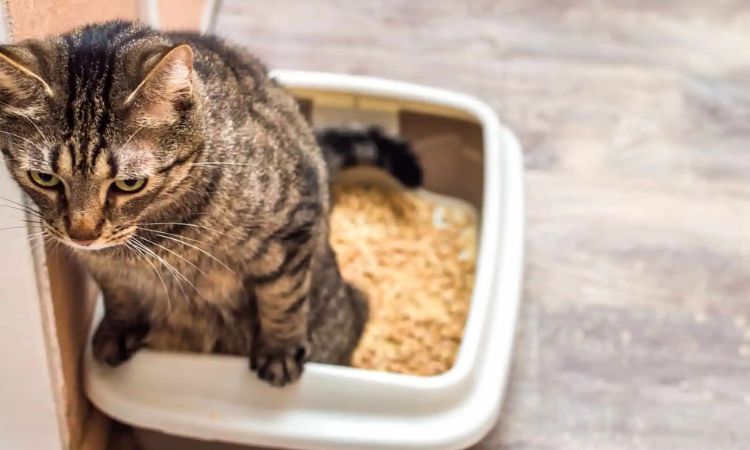
When to Seek Veterinary Advice
While home remedies and environmental adjustments can often reduce or eliminate indoor spraying, there are situations where professional veterinary guidance becomes essential. If your cat continues to spray despite thorough cleaning, stress reduction, and behavior modification, it may indicate an underlying issue that requires medical attention. Persistent or escalating spraying is not only frustrating but could also signal discomfort or a health problem that needs prompt evaluation.
Certain medical conditions can contribute to urine marking. Urinary tract infections (UTIs) are one of the most common causes, causing pain, urgency, and unusual urination behavior. Other conditions, such as bladder stones, kidney disease, or hormonal imbalances, can also trigger spraying as a symptom. Additionally, behavioral or stress-related disorders often stemming from anxiety, environmental changes, or conflicts with other pets—can persist even when home remedies are applied.
A veterinarian can perform a comprehensive examination, which may include a physical assessment, urinalysis, blood tests, or imaging studies, to rule out these underlying causes. Early intervention not only improves your cat’s health but also helps prevent the spraying behavior from becoming a long-term habit. Seeking veterinary advice ensures that your cat receives the proper care and that any necessary medical or behavioral interventions are applied effectively, creating a healthier and more harmonious home environment.



